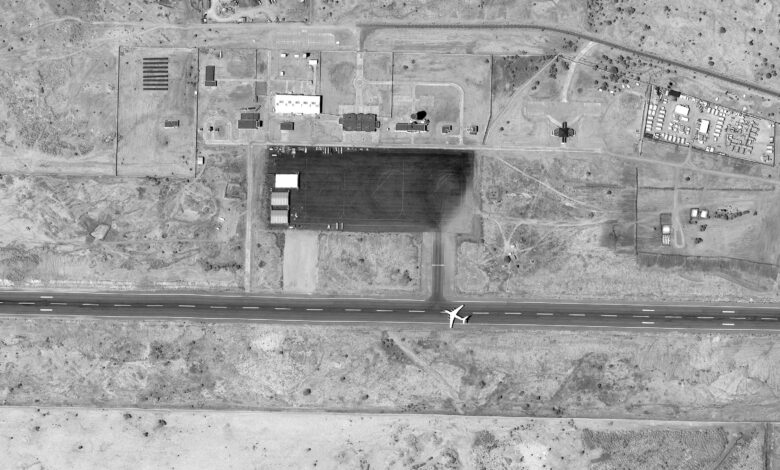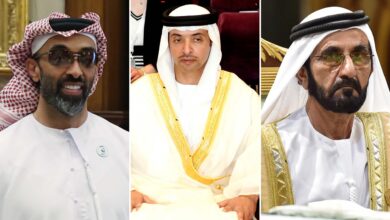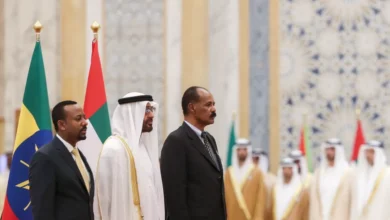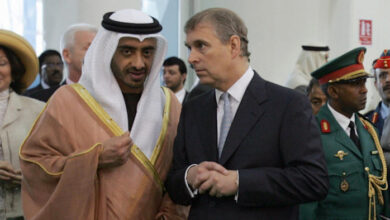The Dark Box Report: Somalia’s Bosaso Airport, UAE Flights, and the Shadow War in Sudan

A recent wave of revelations has shaken Somali politics, ignited regional outrage, and sparked questions of international complicity. The Somali Minister of Defence has publicly confirmed the existence of unsanctioned flights operating out of Bosaso airport—flights that investigations reveal are part of a clandestine network supplying Sudan’s paramilitary Rapid Support Forces (RSF). These findings corroborate a Dark Box investigation that exposed the UAE’s use of Bosaso as a logistics hub in support of a group accused of war crimes and genocide in Sudan.
Flights From Bosaso to a War Zone
For months, aircraft have been taking off from Bosaso, a port city in the semi-autonomous Puntland region of Somalia, en route to western Sudan and neighboring states such as Chad and Niger. These flights carry undisclosed cargo—military-grade logistics that avoid detection by formal customs checks or air traffic disclosures.
According to airport staff and security personnel, these shipments are destined for the RSF. The paramilitary group, which emerged from Sudan’s notorious Janjaweed militias, has been engaged in a brutal civil war against the Sudanese Armed Forces (SAF) since April 2023. Its fighters have been credibly accused of committing crimes against civilians, including mass killings, rape, and the systematic targeting of entire communities in Darfur, particularly in the besieged city of El-Fasher.
Despite mounting evidence and international scrutiny, this clandestine supply line continued operating with impunity—until recently, when Somalia’s Minister of Defence, Ahmed Moallim Fiqi, was pressed to respond to the public revelations.
Official Acknowledgement of Illicit Flights
In a televised session before Somalia’s Senate, Minister Fiqi confirmed that transport aircraft had indeed flown from Bosaso to Sudan via other African countries. He admitted that logistics of unknown content were delivered, validating the core findings of the Dark Box exposé.
Additionally, the minister acknowledged reports that Colombian mercenaries had been transported through Bosaso. While he stopped short of confirming their identities or destinations, Dark Box previously obtained images showing Colombian fighters disembarking at Bosaso airport before relocating to RSF training camps.
The UAE’s Role in the Shadow War
At the center of this operation is the United Arab Emirates. Multiple flight records, satellite data, and eyewitness accounts converge to point toward Abu Dhabi as the origin and coordinator of the airlift. The UAE has for years funded and trained Puntland’s local security forces and maintained an outsized presence in Somalia’s autonomous regions—where its influence is largely unchecked by the central government in Mogadishu.
This influence extends to infrastructure: the UAE holds access to Bosaso’s airport and seaport through opaque contracts and bilateral arrangements, allowing it to operate cargo and personnel flights under the guise of humanitarian or logistical missions. But these missions have included military hardware, mercenaries, and equipment that ultimately serve the RSF’s war machine in Sudan.
The network is sophisticated and layered: equipment arrives from the UAE to Puntland, where it is repackaged or redistributed to planes with new registration numbers, then flown into Sudan via third-party countries. This method, known as “air route laundering,” is designed to obscure the chain of custody and provide plausible deniability.
Somalia Caught in the Crossfire
While the Somali federal government controls the country’s airspace, it has minimal influence over operations within Puntland. Bosaso’s port and airport function outside Mogadishu’s full jurisdiction, creating loopholes exploited by external actors.
Still, critics argue that the central government’s silence amounts to complicity. Abdisaid Muse Ali, a former Somali foreign minister, described Somalia’s involvement as “enabling genocide.” He accused the government of allowing its territory to be weaponized by a foreign regime, turning Somalia into a node in a brutal regional conflict.
Ali emphasized that silence from Mogadishu—whether due to political caution or strategic alignment with Abu Dhabi—undermines the moral legitimacy of the Somali state.
The scandal has gained traction in Somali media and civil society. Scholars, former lawmakers, and religious leaders have denounced the operation. One cleric, Sheikh Ali Wajis, warned that the Somali people were being dragged into “a war not of our making.” Others noted the historic solidarity shown by Sudan toward Somalia during its civil war, accusing Somali leadership of betrayal.
Moral and Strategic Consequences
The case of Bosaso reveals more than just an illicit supply route; it exposes a deeper pattern of proxy warfare, external manipulation, and the erosion of state sovereignty in fragile countries.
The UAE’s support for the RSF—under investigation by multiple international agencies—has already implicated it in violations of humanitarian law. Now, with clear evidence of a Somali logistical role, questions emerge about the long-term consequences for Somalia’s diplomatic standing and internal cohesion.
Moreover, the potential use of Somali territory in crimes against humanity—specifically the RSF’s ethnic cleansing campaigns in Darfur—could become the subject of international inquiry. If confirmed, it would not only tarnish Puntland’s administration but also call into question the responsibility of Somalia’s federal government for failing to act.
Conclusion
The Dark Box investigation has brought to light a network that operates in the shadows of regional war. It involves flights, mercenaries, war profiteers, and covert political agendas stretching from Abu Dhabi to Bosaso, from El-Fasher to Mogadishu.
The question that remains is whether Somali leadership—both in Puntland and in the federal capital—will take meaningful action to dismantle this network or continue to allow its territory to serve foreign agendas in one of the world’s most devastating ongoing conflicts.
If Somalia is to preserve its sovereignty and moral standing, it must urgently confront the role it plays in this unfolding tragedy.




